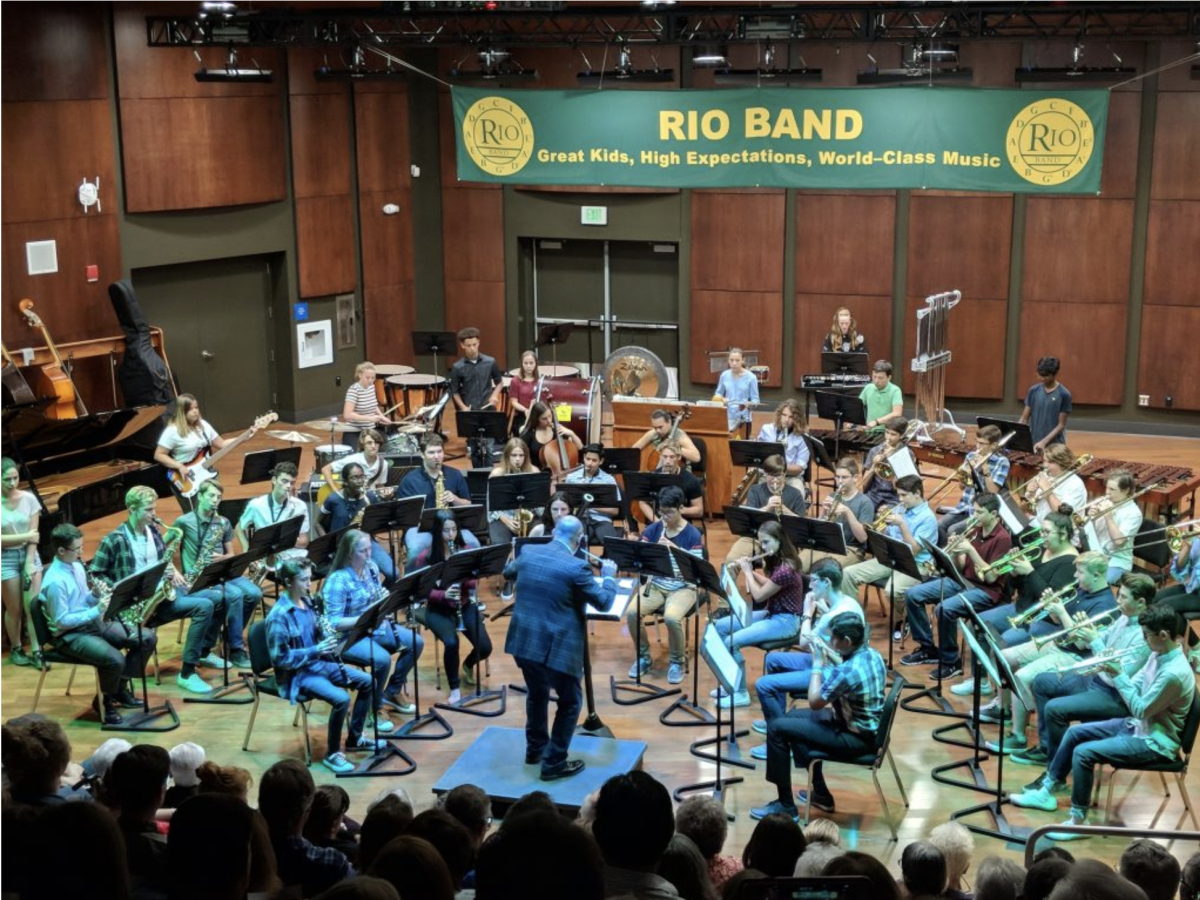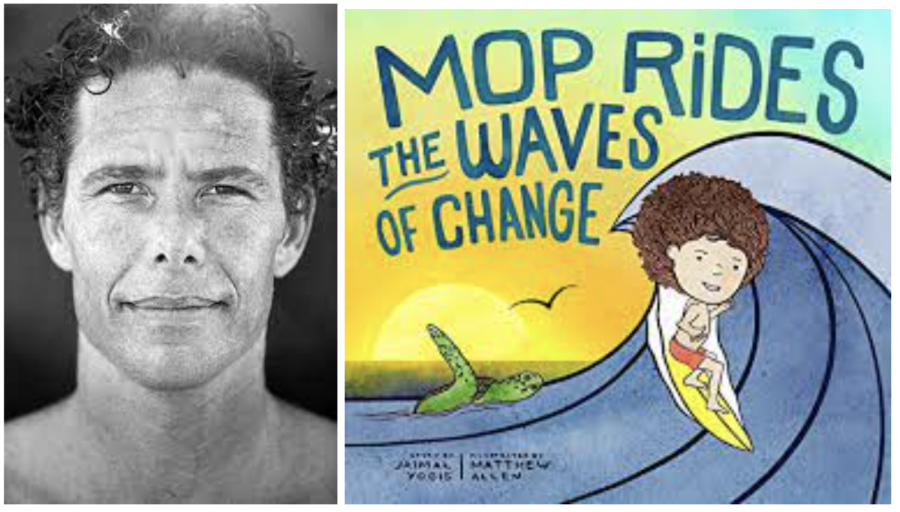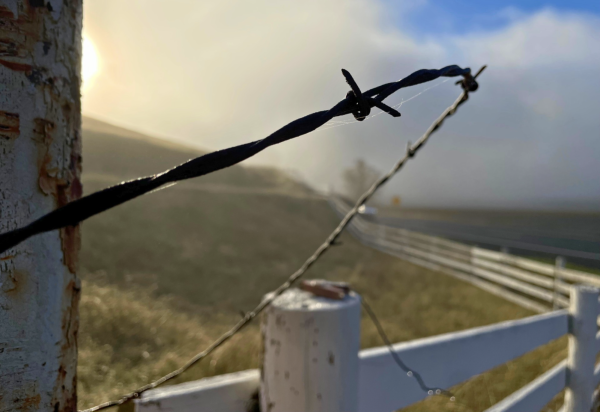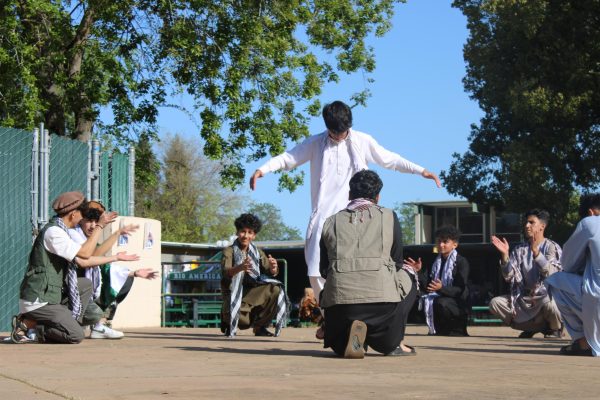Jaimal Yogis ran away from Rio and became a noted author
Once a troubled kid, Yogis found surfing and Buddhism and has published memoirs and children’s books
When he was 16, Jaimal Yogis ran away from his suburban Sacramento home to Hawaii to catch his Dad’s attention–and also catch some waves.
Under scrutiny for an arrest for drunken driving and feeling too confined as a junior at Rio Americano High School, Yogis bought a one-way ticket to the island, bringing just enough money (most of it taken from his mom’s credit card) to buy a surfboard and that other necessity of life, a skateboard.
Although it seemed for a while like he was running away from our often-rescheduled phone interview as well, I finally caught up with him one day at his home in San Francisco, and he was able to share some perspective about his writing and his life. And then, all too soon, he had to run to take one of his sons to basketball practice.
An Army brat and child of divorced parents, Yogis moved around a lot growing up, a pattern that continued even after he started living on his own. From Sacramento to Hawaii, to the Himalayas, to New York, he was constantly on the move, trying to find himself in the process.
In high school, he ran away in hopes of rekindling a relationship with his Dad, on top of being frustrated by the constraints of probation because of a DUI in Tahoe, boredom with a seemingly happy suburban life and a feeling that he needed to be with the water. He lived for a few weeks in a ramshackle house near the beach on Maui while reading books on Zen, trying to meditate and learning to surf.
He ultimately succeeded in reconnecting with his dad, when he came to find him in Hawaii, and they spent some time there surfing and negotiating Yogis’ return from paradise. Convincing him that running away from your problems doesn’t solve them and that he had to finish high school, Jaimal’s Dad took him to come live with him in Marysville.
These events and the feeling of longing for a connection with his Dad seemed like they might be relatable, so Yogis made them a starting point for his first book, the 2009 memoir “Saltwater Buddha.” “I eventually decided that releasing the story might help other people who had been through similar struggles like divorce, and I’m glad I did,” Yogis said. “But I had to break through some layers of anxiety.”
Indeed, before he could write the book he took a long, exploratory journey through cities, schools, careers, monasteries and surfboards. Slowing down to work on the memoir let him get back to what he really loved, surfing and writing.
“My favorite part of writing it was that I quit my magazine writing job for six months and went to live on a sailboat for cheap rent. After hustling for journalism jobs, to take six months and just write and surf was really wonderful.”
The coming of age story covers struggles, journeys, awakenings, and, of course, the Zen experience of surfing. He writes: “Surfing is kind of a good metaphor for the rest of life. The extremely good stuff – chocolate and great sex and weddings and hilarious jokes – fills a minute portion of an adult lifespan. The rest of life is the paddling: work, paying bills, flossing, getting sick, dying.”
After “Saltwater Buddha,” he went on to write six more books- biographies, fantasies, memoirs, and children’s books, including his most recent work, “Mop Rides the Waves of Change,” which was published last fall.
When discussing our connection–Rio Americano–Yogis, who was a popular water polo player and skater, had mostly positive things to say, despite it being the place he had run away from.
“I think on a superficial level, running away didn’t have as much to do with Rio as it did my own existential angst and wanting to see something other than Sacramento,” he said. “I think because Rio had all the trappings that most high schools do, you’re forming your identity in high school, so you’re naturally really caught up in what people are wearing, and what parties they’re going to, who’s dating who and who’s not, and I think I was frustrated with myself for getting caught up in that.”
He spoke about these learnings reflectively and evaluatively, though in fragments, as he had to pause to tell his boys to stay on the playground and not fight.
He was excited to discuss some of his favorite teachers, who he said had an (accidental on their part) impact on his decision to run away.
“Mr. [Alec] Hodgins was an influence to some degree,” Yogis said. “Although he never suggested that I run away, he was so adventurous before he became a teacher. He worked on fishing boats and lived in Alaska, and just traveled a lot, and in the midst of the popularity contest of high school, which I felt like I was in and out of being consumed by, he stood outside of that.
“Also, Mr. [Richard] Thorn, who was a long-time economics and honors history professor. … He just made history really fascinating and applicable to our lives. Things that you’d hear in the news that I didn’t even know how they worked, he’d tie them into history and it made me hungry to get out into the world.”
Yogis had been desperate to break free and find himself; it was just unfortunate for his mom (and the money he stole from her before heading to the airport) that he thought a one-way ticket to Hawaii was the only way to do so. After he returned to Northern California to live with his dad, he repaid the money. The rest of “Saltwater Buddha” covers his restless 20s as he explored surfing, writing and Buddhism.
While shopping in San Diego last week, I wandered into a surf shop and saw that it was selling copies of “Mop Rides the Waves of Change,” the second in the Yogis’ “Mop Rides” series, a children’s book series about surfing, ocean conservation, and the anxieties of childhood. I was glad to see this book as I remembered something Yogis had said about the genres he wrote in. “The hardest part about writing ‘Saltwater Buddha,'” he said, “was probably coming out with a memoir at such a young age – and about such a vulnerable topic – and worrying about how it would be received. I had big aspirations to try fiction writing, and I worried that it would pigeonhole me.”
So, I was glad to see that fiction writing is working out pretty well for him.
Yogis now lives in San Francisco with his wife and three boys and has come a long way since his troubled days at Rio Americano, with a wildly interesting path that has led him to become an extremely happy and successful journalist, author, mentor, and father.
Near the end of “Saltwater Buddha,” Yogis writes about a lesson he could not get in the high school he fled. “I guess what I’m trying to say is that I’m learning to not want to be someone else, to just be who I am, as is, with nothing else added on.”
Seems like nothing else is needed.
Read more: Jaimail Yogis isn’t the only notable author to graduate from Rio Americano, nor is he the only one who desperately wanted to escape Sacramento.
Adrian Tomin, a critically acclaimed and best-selling graphic novelist, graduated in the early ‘90s, a few years ahead of Yogis. Tomine’s most recent book, the graphic memoir, “The Loneliness of the Long Distance Cartoonist” (2020) is crafted in the same way he created Optic Nerve, a comic book series he began while a student at Rio. Read Jessica Sheppard’s full profile of Tomine.





























